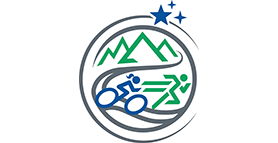Thermal & Vascular Physiology Laboratory
Research in the Thermal and Vascular Physiology Laboratory focuses on neural control of the cardiovascular system and how different stressors influence that control in healthy, diseased, and injured individuals, such as:
- Identifying the consequences of severe burn injuries and subsequent skin grafting on the ability of the burn survivor to regulate internal temperature and cardiovascular function.
- Understanding the consequences of aging on cardiovascular stress during simulated heat waves.
- Exploring cooling modalities to attenuate thermal and cardiovascular stress.
- Understanding how analgesics used on the battlefield affect autonomic control of blood pressure during hemorrhage.
Interests
- Dr. Crandall’s research interests revolve around neural control of the cardiovascular system, with emphasis on how thermal stress modifies this control.
- Research areas range from integrative thermoregulatory studies in healthy and unique populations (e.g., skin graft patients) to mechanistic studies on the skin microcirculation.
Clinical applications of this work include:
- Improved blood pressure control during hemorrhage (particularly in heat stressed individuals such as soldiers, construction workers, etc.).
- Improved temperature regulatory capacity for injured/diseased individuals (e.g., patients with skin grafts, congestive heart failure, etc.)
- Improved temperature regulation for the elderly during heat stress (heat waves, extreme exercise, etc.)
Current Projects
- Cooling modalities to attenuate thermoregulatory and cardiovascular stress in burn survivors and the elderly.
- Cardiovascular consequences of heat waves on the elderly.
- Cardiovascular consequences of Beta Blockers on healthy individuals experiencing heat stress.
- Effects on thermoregulation due to Stevens-Johnson syndrome (SJS) and Toxic Epidermal Necrolysis (TEN).
- Differences in epidermal and subdermal skin temperature responses to low-energy cooling modalities.
Current Research Opportunities
View our current research opportunities for:
- Cooling Modalities, Burn Survivors, Exercise
- COPD, Heat Wave, Aging, and Cardiovascular Function
- Cooling Modalities, Heat Wave, Aging, Cardiovascular Function
- Skin Temperature, Epidermal, Subdermal
- Steven-Johnson Syndrome, Toxic Epidermal Necrolysis, Thermoregulation
- Beta Blockers, Cardiovascular Function, Thermoregulation
-
Principal Investigators
-
Postdoctoral Fellows / Residents
-
Staff
-
Burn injury does not exacerbate heat strain during exercise while wearing body armor
Fischer, M, M.N. Cramer, M. Huang, L.N. Belval, J.C. Watso, F.A. Cimino, C.G. Crandall. Burn injury does not exacerbate heat strain during exercise while wearing body armor. Med Sci Sports Exerc 52:2235-2241, 2020. https://pubmed.ncbi.nlm.nih.gov/32936596/
-
Dietary nitrate supplementation does not influence thermoregulatory or cardiovascular strain
Cramer, M.N., M. Hieda, M. Huang, G. Moralez, C.G. Crandall. Dietary nitrate supplementation does not influence thermoregulatory or cardiovascular strain in older individuals during severe ambient stress. Exp Physiol (in press). https://pubmed.ncbi.nlm.nih.gov/32816341
-
Low Dose Ketamine Affects Blood PressureHuang, M., J.C. Watso, G. Moralez, M.N. Cramer, J.M. Hendrix, J.Yoo, M.B. Badrov, Q. Fu, C. Hinojosa-Laborde, C.G. Crandall. Low Dose Ketamine Affects Blood Pressure, but not Muscle Sympathetic Nerve Activity, during Progressive Central Hypovolemia without Altering Tolerance. J Physiol (in press)
-
Keeping Older Individuals Cool in Hot and Moderately Humid Conditions
Cramer, M.N., M. Huang. G. Moralez, C.G. Crandall. Keeping Older Individuals Cool in Hot and Moderately Humid Conditions: Wetted Clothing with and without an Electric Fan. J Appl Physiol128:604-611, 2020.https://pubmed.ncbi.nlm.nih.gov/32027545/
-
Exercise Thermoregulation with a Simulated Burn Injury
Cramer, M.N., G. Moralez, M. Huang, K. Kouda, P.Y.S. Poh, C.G. Crandall. Exercise Thermoregulation with a Simulated Burn Injury: Impact of Air Temperature. Med Sci Sports Exerc 52:712-719, 2020. https://pubmed.ncbi.nlm.nih.gov/31609298/
-
Progressive exercise training improves maximal aerobic capacity in individuals with well-healed burn injuries
Romero, S.A., G. Moralez, M.F. Jaffrey, M. Huang, M.N. Cramer, N. Romain, K. Kouda, R.G. Haller, C.G. Crandall. Progressive exercise training improves maximal aerobic capacity in individuals with well-healed burn injuries. Am J Physiol Reg Comp Physiol 317:R563-R570, 2019. https://pubmed.ncbi.nlm.nih.gov/31433672/
-
Tolerance to a haemorrhagic challenge
Huang, Mu, R.M. Brothers, M.S. Ganio, R.A.I. Lucas, M.N. Cramer, G. Moralez, V.A. Convertino, C.G. Crandall. Tolerance to a haemorrhagic challenge during heat stress is improved with inspiratory resistance breathing. Exp Physiol 103:1243-1250, 2018.https://pubmed.ncbi.nlm.nih.gov/29947436/
-
Age Modulates Physiological Responses during Fan Use
Gagnon, D., S.A. Romero, M.N. Cramer, K. Kouda, P.Y. Poh, O. Jay, C.G. Crandall. Age Modulates Physiological Responses during Fan Use under Extreme Heat and Humidity. Med Sci Sports Exerc 49:2333-2342, 2017. https://pubmed.ncbi.nlm.nih.gov/29873123/
-
Cardiac and thermal strain of elderly adults exposed to extreme heat and humidity
Gagnon, D., S.A. Romero, M.N. Cramer, O. Jay, C.G. Crandall. Cardiac and thermal strain of elderly adults exposed to extreme heat and humidity with and without electric fan use. JAMA 316: 989-991, 2016. https://pubmed.ncbi.nlm.nih.gov/27599335/
-
The effect of passive heat stress and exercise-induced dehydration
Gagnon, D., Z.J. Schlader, A. Adams, E. Rivas, J. Mulligan, G.Z. Grudic, V.A. Convertino, J.T. Howard, C.G. Crandall. The effect of passive heat stress and exercise-induced dehydration on the compensatory reserve during simulated hemorrhage. Shock 46(Suppl 1): 74-82, 2016. https://pubmed.ncbi.nlm.nih.gov/27183303/







